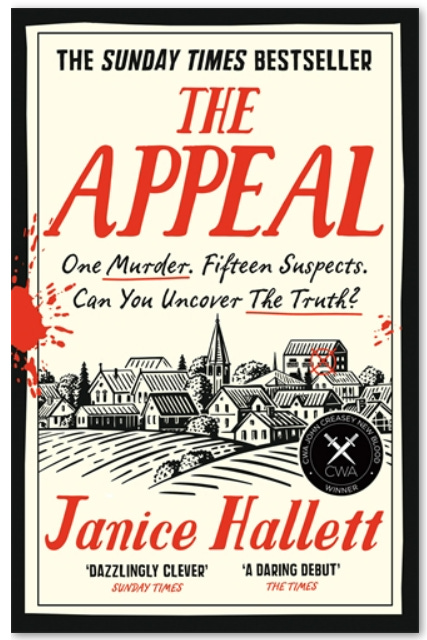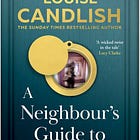The Appeal by Janice Hallett
The story starts with humorous emails, but beneath the cosy veneer is a much darker tale. Definitely one to add to your to-be-read pile.
The Appeal* was Janice Hallett’s debut and it’s a superb read. Expertly plotted, credible characters, a multi-layered story and a unique way to tell the story. That’s an incredible achievement for a first novel.
The story hinges on the Fairway Players’ adaptation of All My Sons and the charity appeal for Poppy Reswick’s medical treatment. As you work your way through the story, you discover there’s more going on in the village.
The book starts with humorous emails between members of the theatre group. But before long, you start to realise that some of the characters are not being honest with each other. Beneath the cosy veneer is a much darker tale, reminding me of A Neighbour’s Guide to Murder.
You’re told someone has been murdered and another has been wrongly convicted for it. Then two characters are given a cache of emails sent before and after the murder. Their job, and yours, is to solve what happened using the same information.
I should mention that The Appeal* is told entirely through emails and messages between the characters. There’s no narration, scene setting or character descriptions. Everything you read is essentially dialogue.
When I realised the whole book follows this approach, I was sceptical about how it would work. But my scepticism was unfounded, because the book is a masterpiece. I read the whole book in a weekend and found it hard to put down. The skill with which the author creates distinct characters with depth from their emails alone is excellent.
While there are many characters in the story, you’re given recaps on who is who and there’s a core group who are at the centre of things.
What I loved above all about the book was its originality, believable characters and an intriguing story. Definitely one to add to your to-be-read pile.
*Disclosure: If you buy books linked to my site, I may earn a commission from Bookshop.org, whose fees support independent bookshops




